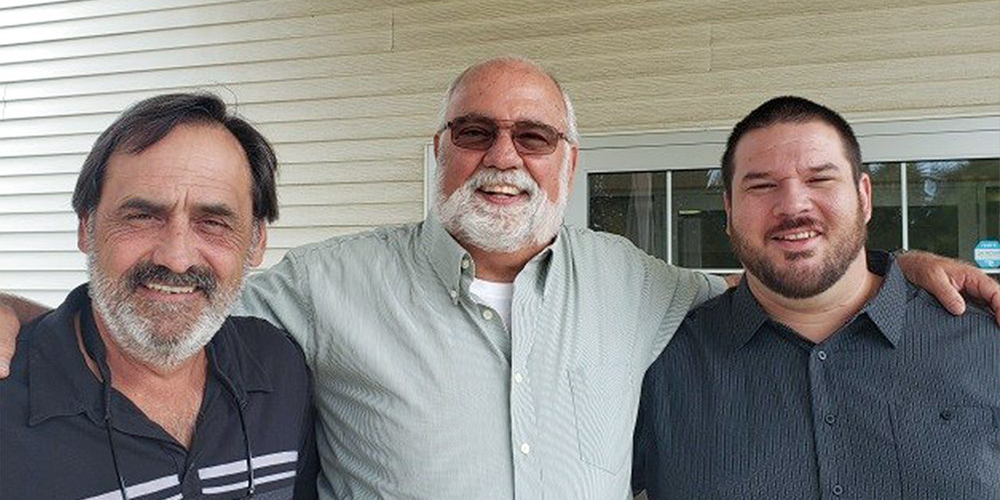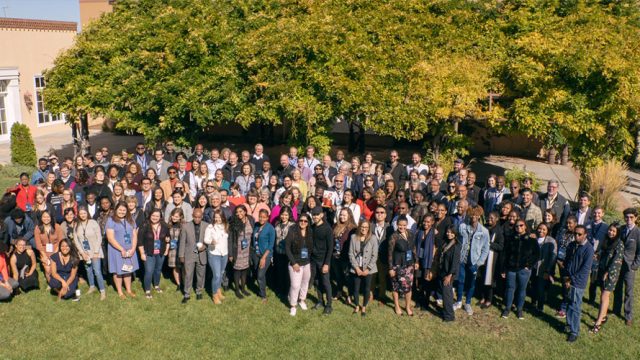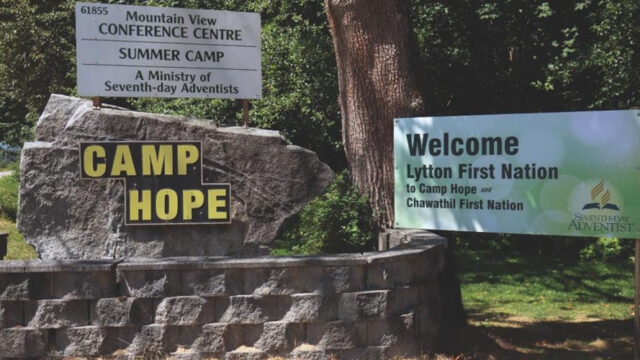A local church prison ministries leader in the U.S. reflects on his experience of service.

In the months that preceded one particularly productive church board meeting, I had a recurring thought. I call them yo-yo thoughts — they come into your head, and shortly after that, you throw them out. But before you know it, they come speeding right back to you. And at times, these yo-yo thoughts may be the Holy Spirit trying to tell you something.
Near the end of the board meeting, the pastor, Karen Lewis, asked if anyone had other items to be addressed, so I decided to share. I told the board I would like to start a prison ministry as a representative of the Hinckley Seventh-day Adventist Church, my congregation in Hinckley, Minnesota, United States.
No sooner had I said the words when Robert Fast-Horse, a friend of mine, looked at me with a surprised look. “You’re kidding!” he said. He explained that the same thought had been in his mind for some time. So the Hinckley Adventist church prison ministry was born, with three of us representing it: Mike Bonn, Robert Fast-Horse, and me.
Meeting the Men Behind the Walls
To prepare, I signed up for the first Church Leadership Summit hosted by the Minnesota Conference church region and attended a class on prison ministry presented by an ex-convict. I also signed up with Minnesota Adventist Prison Ministry and met the director, who educated me on how the ministry works.
Fast-Horse, Bonn, and I then contacted the chaplain at Moose Lake Correctional Institution (MLCI), which is a state prison, and signed up to take orientation classes. The state prison system runs you through a gamut of forms, questions, and background checks. When these are complete, you can go into the prison and meet the men behind the walls.
The first time was nerve-wracking. I checked in, walked down the hallway, and heard the iron doors slam shut behind me. When I walked into the room, eight men — some sitting and others standing — were waiting for us to start the church service.
On my first visit to MLCI we had no singing, so I decided I would bring my guitar on my next visit. After inspecting the guitar with a fine-tooth comb, the prison workers allowed me to bring it in.
You are not allowed to take electronic devices into the facility, so I printed song sheets, and we sang. The men loved to sing. They put their heart and soul into singing, and it was a joy to listen to the voices ascending to heaven in worship. The men even formed a band with two guitars, a bass guitar, a keyboard, and electronic drums.
It is a challenge to give a sermon without any visual aids because of the no-electronic-device rule. On one visit, though, I noticed an overhead projector sitting in the corner of the room. It was not the type of overhead projector we see in churches today, but an old projector that requires transparent plastic-film overhead sheets. I asked the chaplain if we were allowed to use it, and he said we could, but that it hadn’t been used for some time.
I went home and put together a sermon on PowerPoint slides. Then I printed the sermon slides on the old transparent plastic-film overhead sheets and used them on the next visit. The response from the offenders was worth the extra effort. We have increased from eight offenders to averaging 20 to 30, and the group is still growing.
The Tithe-Paying Man
About three months after the Hinckley church started its prison ministry at Moose Lake, we received a letter from a man who was incarcerated at the federal prison in Sandstone, Minnesota. Not only did he send a letter asking for Bible studies and a Bible with Adventist Church cofounder Ellen G. White’s commentary, but he also sent money because he wanted to pay tithe to our church. When I read the letter, I remember thinking, A man who pays tithe from prison needs to be visited and befriended.
A federal prison is different from a state prison, and I didn’t know how to go about getting a ministry started at a federal prison. I asked God if it was possible to meet this tithe-paying man who lives in a federal prison.
A short time later, a thought came into my mind: Call the federal prison and ask for the chaplain. I called the prison and reached the chaplain. I explained about the letter we received and told him I was interested in coming to meet with this offender.
I told the chaplain I was a member of the Adventist Church in Hinckley and would visit as a representative of my church. Then, after going through the same scrutiny as the state prison system had put me through, I was able to make my first visit to the Sandstone Federal Correctional Institution.
I went there to meet the tithe-paying man but found myself in the prison’s library with eight men who were eagerly waiting to meet me and hear what I had to say. I was nervous — I was in a new prison with offenders I didn’t know, and this was my first solo visit to a prison.
The tithe-paying man was younger than I expected, and humble. He had invited his friends to the meeting, and we had a wonderful study about the gospel. When I left the federal prison, I thanked God for the blessing and joy in my heart once again.
The men in the federal prison aren’t any different than the men in the state prison — they all love to sing. So I took my guitar in, and we sang.
The federal prison has been a good challenge. We are in the process of doing Karen Lewis’s Lifting Up Jesus Bible studies with offenders. I have been at the prison 12 times since we started the studies, and we just finished lesson number one. We are going slowly, and we are not leaving any stone unturned.
The Blessing of Service
It has been an honor and a blessing to be a part of the prison ministry. Some may think prison ministry is a lot of commitment and extra work — and it is. But I believe God has set up a system. When you align yourself with God in partnership with a mission, you are the one who receives the blessing. It never fails.
When I walk out of those metal doors and they slam shut behind me, I always thank God for a wonderful time and the blessing of joy in my heart.
The original version of this commentary was posted by the Mid-America Union Conference Outlook.








